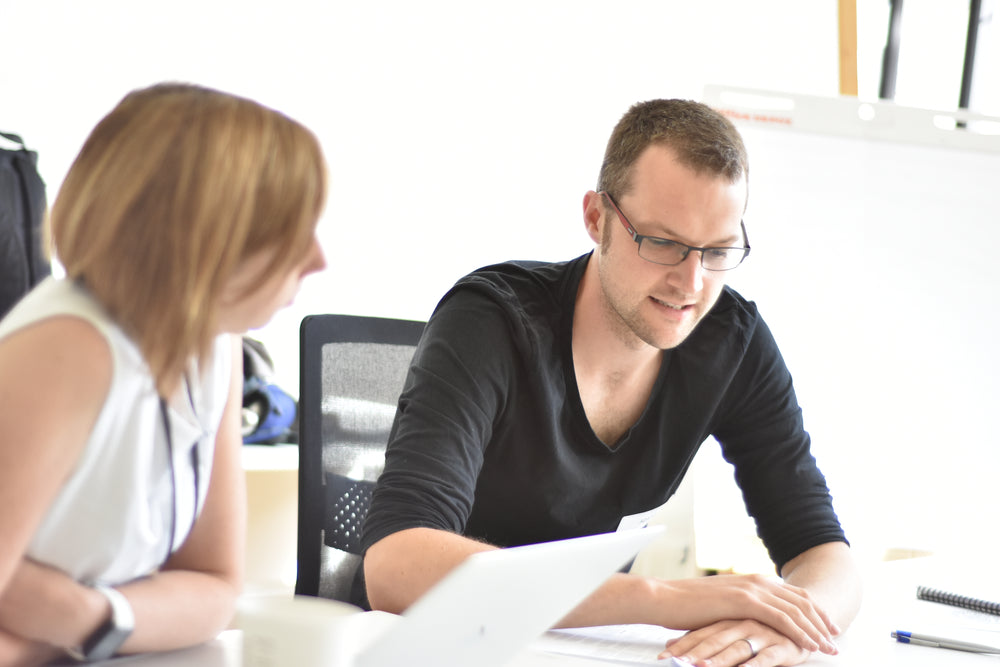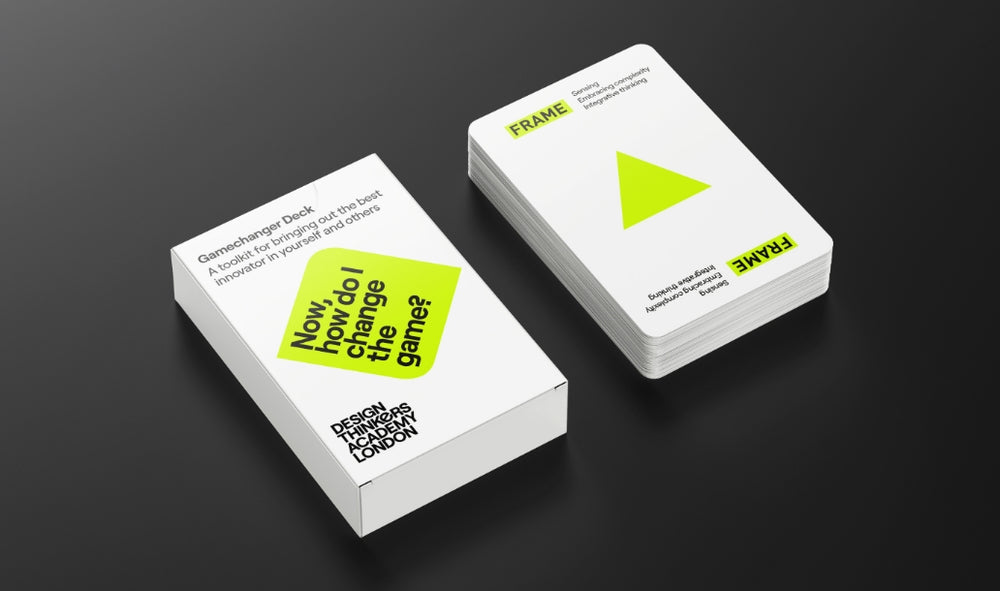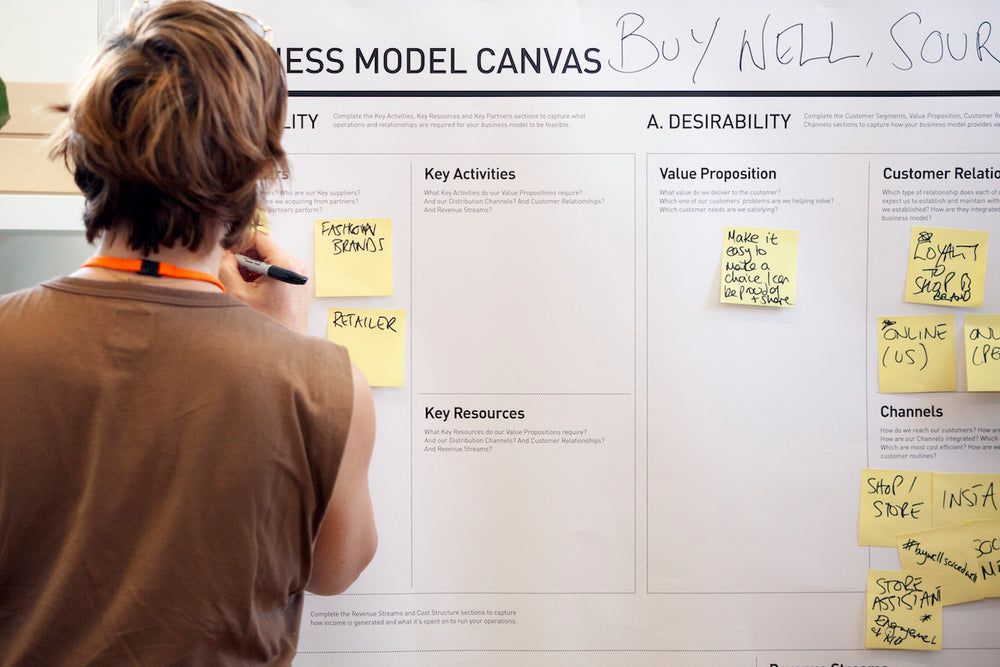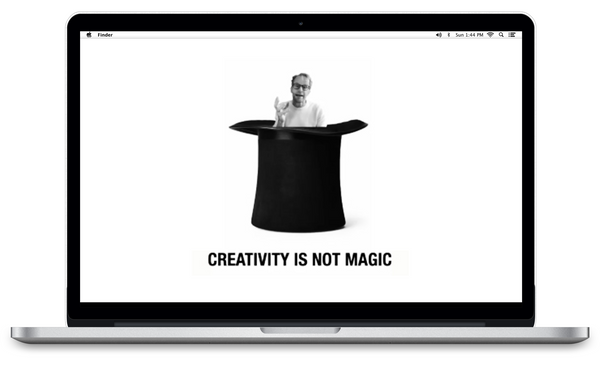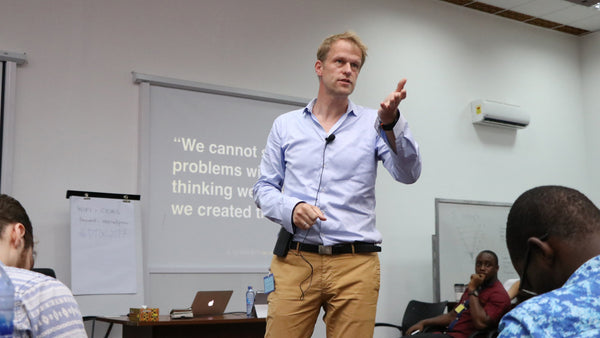"You have no authority here Jackie Weaver, no authority at all! Read the standing orders! READ THEM AND UNDERSTAND THEM!!"
Of the many Zoom stories that have gone viral over the last year, one that caught the public attention more than most (yes, even more than talking cats) was the crazed chaos of the Handford Parish Council meeting. Despite the now iconic Jackie Weaver’s best efforts, the meeting spiralled wickedly out of control, with arguments, kick-outs and more. Aside from the smiles it produced, the meeting also provided a stark example of the dangers of this digital world we now live in and why now, more than ever, good facilitation matters.
Good facilitation is all about leading a group of people towards your common goal in a way that utilises all the various qualities of the group. At the Design Thinkers Academy London, our facilitation training courses focus on Design Thinking facilitation and how to confidently guide teams in applying design thinking, yet the same core principles of facilitation remain.
"A great facilitator guides people through the process and inspires participants to get involved. They engage people in co-creation and collaboration activities (while being a neutral party) and they understand the various people and personalities in the room."
In this online format good facilitation is even more critical. Who else has been in Zoom meetings full of competing voices, delayed internet connections, co-collaboration confusion and 40-minute cuts out? These are just a small drop in an ocean of troubles that we face over Zoom and why, as a result, we need good facilitators to lead us through. If we lose the core principles of facilitation then, as the Handford Parish Council showed, things can spiral quickly.
So, to help, we thought we’d put together some guiding tips to help you facilitate and navigate these times with more confidence and certainty. This is just a brief overview, and if you’re interested in really developing your facilitation skills, then do check out our Online Design Thinking Facilitation course.
How to facilitate better
There are two sides to the facilitator coin. One is knowing the various ways and techniques to become a better facilitator, whilst the other is then understanding facilitation itself, the theory behind it and your role within that. Let’s start with the former.
In order to really get better at facilitation, you need to take the time to learn it. This skill set does not just appear overnight. Like anything, it is something that requires your time and effort. Do not just assume that because you’re a confident public speaker, you’ll be a good facilitator. Unfortunately it does not work that way. However, that doesn’t mean you can’t learn quickly. Here are some quick wins to get you started, which improve the facilitation of any online meeting.
Online Top tips
- Raise your camera to eye level
- Use an independent keyboard (to avoid typing noises)
- Turn self view off (it can act as a distraction to the things you should concentrate on)
- Prepare your plan and keep your “script key lines” in sight (e.g. stickies on wall at eye level)
- Keep an agenda, with timings visible and a timer to hand
- Have tech support available
These are quick easy things to implement, but the impact they can have on meetings is huge. However, even with the best practice, it does not mean meetings always go to plan.
Dealing with disruptors
As we saw in Handforth Parish Council, dealing with disruptors is a real challenge. As much as we admired Jackie Weaver’s ruthless use of Zoom, we do not recommend it as best practice. If we did, then no one would ever get anything done. It is an extreme example, but disruptors are common and your ability to deal with them as a facilitator is paramount to the success of a meeting. Most people aren’t aiming to disrupt for the sake of it. Be patient and accept that this is normal to the workplace.
An experienced facilitator will anticipate and proactively plan to prevent disruptive behaviours. Still, sometimes disruptions will come unannounced. When that’s the case, try and understand where they are coming from, then use your skills to negate the issue. This includes recognising and addressing any disruptive behaviours early on and navigating these disruptors towards a more desirable way of participating, making sure to minimise the impact to the wider group’s morale or progress.
Recognising the various kinds of disruptive behaviours, understanding their source, and knowing how to intervene, help facilitators act promptly and effectively.
Nursing ideation
For us, facilitating is much more than doing – it is also about being. Everyone has their own facilitation style, based on who they are. It is very important to be your authentic self when facilitating – only then can you really feel comfortable. This will help you feel confident, which in turn will inspire trust in the participants.
One thing to do is reflect regularly on your facilitation style, as this helps you become more aware of it. If you’re conscious of what you do, then you will improve your craft. If you understand your facilitation style, it helps you become intentional about it. Know your strengths and know your weaknesses. This way you can make best use of the former and work on the later.
Taking in all of that, also be aware that you’re going to need to adapt your facilitation at times. Don’t be rigid to a set formula. Not everything is under your control (E.g. disruptors) and you have to be open to that.




